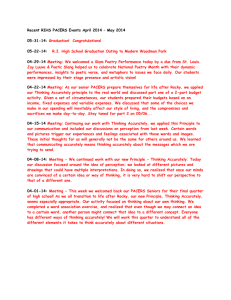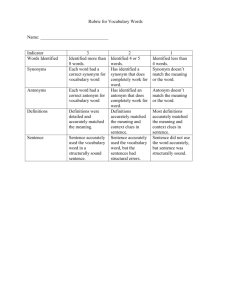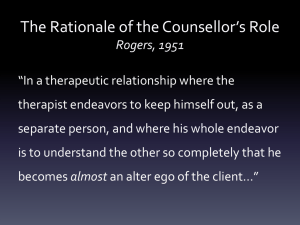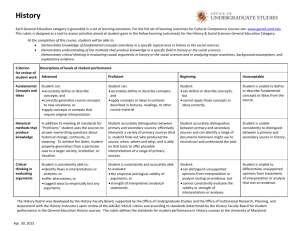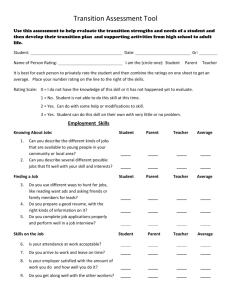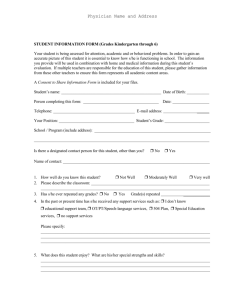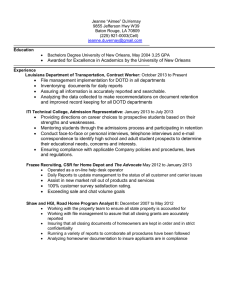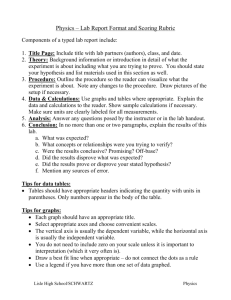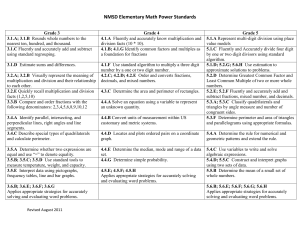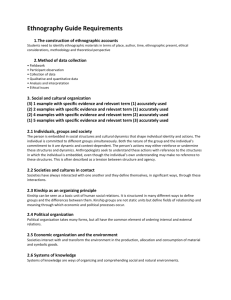Turning Visions in to Deeds from Alverno College
advertisement
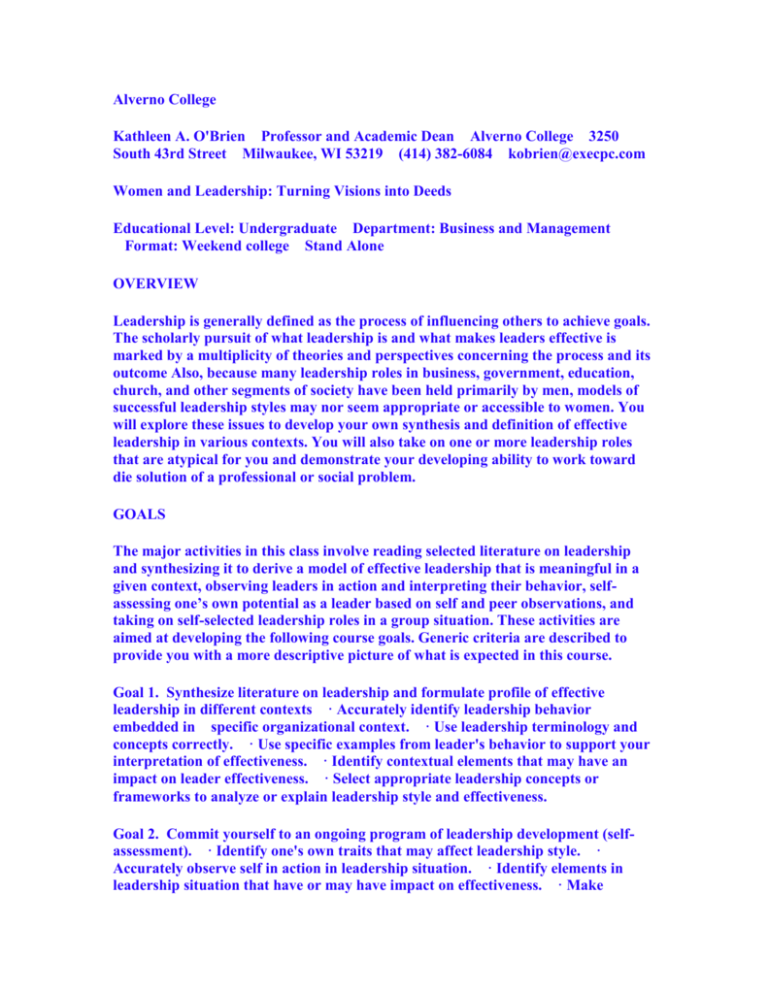
Alverno College Kathleen A. O'Brien Professor and Academic Dean Alverno College 3250 South 43rd Street Milwaukee, WI 53219 (414) 382-6084 kobrien@execpc.com Women and Leadership: Turning Visions into Deeds Educational Level: Undergraduate Department: Business and Management Format: Weekend college Stand Alone OVERVIEW Leadership is generally defined as the process of influencing others to achieve goals. The scholarly pursuit of what leadership is and what makes leaders effective is marked by a multiplicity of theories and perspectives concerning the process and its outcome Also, because many leadership roles in business, government, education, church, and other segments of society have been held primarily by men, models of successful leadership styles may nor seem appropriate or accessible to women. You will explore these issues to develop your own synthesis and definition of effective leadership in various contexts. You will also take on one or more leadership roles that are atypical for you and demonstrate your developing ability to work toward die solution of a professional or social problem. GOALS The major activities in this class involve reading selected literature on leadership and synthesizing it to derive a model of effective leadership that is meaningful in a given context, observing leaders in action and interpreting their behavior, selfassessing one’s own potential as a leader based on self and peer observations, and taking on self-selected leadership roles in a group situation. These activities are aimed at developing the following course goals. Generic criteria are described to provide you with a more descriptive picture of what is expected in this course. Goal 1. Synthesize literature on leadership and formulate profile of effective leadership in different contexts · Accurately identify leadership behavior embedded in specific organizational context. · Use leadership terminology and concepts correctly. · Use specific examples from leader's behavior to support your interpretation of effectiveness. · Identify contextual elements that may have an impact on leader effectiveness. · Select appropriate leadership concepts or frameworks to analyze or explain leadership style and effectiveness. Goal 2. Commit yourself to an ongoing program of leadership development (selfassessment). · Identify one's own traits that may affect leadership style. · Accurately observe self in action in leadership situation. · Identify elements in leadership situation that have or may have impact on effectiveness. · Make connections between context and effectiveness. · Accurately use appropriate leadership concepts, principles, frameworks to analyze and explain what might have or has happened. · Show growing ability to accurately self-assess one's leadership approach in a particular situation. · Develop a plan for leadership growth based on self-assessment. Goal 3. Demonstrate capacity to take on the formal or informal leadership function of a group, exhibiting new leadership characteristics and abilities General Criteria for Evaluating Effectiveness of Leadership in Group · Demonstrate proactive behavior through negotiation, mediation, and persuasion adapted to intragroup and interpersonal situations directed by goals consistent with personal and organizational values. · Effectively and accurately evaluate and interpret cultures of complex organizations showing confidence in planning and conducting diverse negotiations and leadership of an overall group/organizational vision. · Demonstrate understanding of competing influences of personal and group goals/values. · Recognize the importance of concern for group members, as well as the task in carrying our leadership responsibility. · Deal effectively with both formal and informal networks of communication. · Structure data, resources, environment toward goal achievement. · Interact effectively with people and with cultural diversity at various levels of organizational structure (e.g., team members, peers, superiors). · Recognize and assume leadership behavior appropriate to the situation. · Demonstrate commitment, acceptance of responsibility, and adequate preparation for all aspects of leadership role. · Willingly accept feedback from others and follow through on suggestions for improvement. · Activity-peer assessment of individual portfolios. · Teams prepare presentations on women interviewees. Assignments: · Finish group interview project and prepare for final class presentations. Can I synthesize what I have learned about leadership and communicate it clearly to others? Do I understand my potentialities as a leader? In-class activities: · Team presentations of interviews. · Panel of women leaders (if possible) · Summing it all up.

